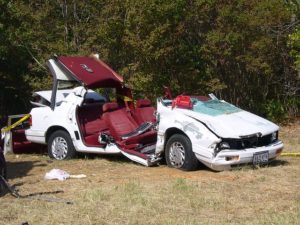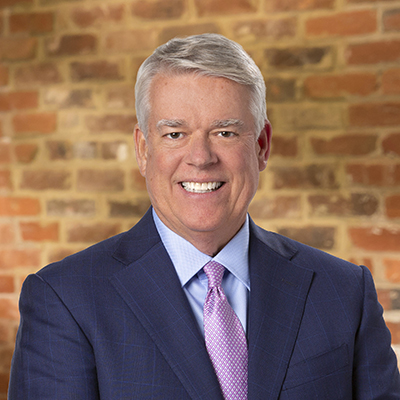Buying car insurance online is fast and easy—but it often leaves you wondering if you’re truly protected. Without the help of an experienced agent, it’s easy to choose a policy without understanding what it actually covers. Unfortunately, many people only realize the gaps in their coverage after an accident happens.
If you live in Virginia, you may wonder about what you should know about Virginia auto insurance and the minimum coverage you’re required to carry. You also need to know what’s recommended to fully protect yourself in case of an accident. Read on to learn what the Virginia state minimum insurance limits are, explain what terms like 30/60/20 insurance mean, and help you decide how much bodily injury coverage you should carry.

¿Qué tipos de seguro de automóvil en Virginia existen?
Auto insurance policies can include several types of coverage. These are typically divided into first-party and third-party protections.
First-party coverages
These cover you and your vehicle, regardless of who caused the accident. Common first-party coverages include:
- Collision coverage: Pays for damage to your vehicle if you hit another car or object.
- Comprehensive coverage: Covers non-collision damage, like theft, hail, or fire.
- Medical payments (MedPay): Helps pay for your medical bills after a crash.
- Lost income: Covers wages you miss due to injury.
- Rental reimbursement: Pays for a rental car while your vehicle is being repaired.
- Towing and labor: Helps with roadside assistance.
- Uninsured/Underinsured Motorist (UM/UIM) coverage: Protects you if you’re hit by a driver with no or too little insurance.
Third-party coverage
This includes liability insurance, which pays for injuries and property damage you cause to others. It’s the only type of insurance required by Virginia law. Third-party coverage includes:
- Bodily injury liability
- Property damage liability
Virginia minimum auto insurance requirements
Virginia law requires drivers to carry a minimum amount of liability insurance—or pay an uninsured motor vehicle (UMV) fee. If you choose insurance, your policy must meet the following Virginia bodily injury limits:
- $30.000 por lesiones corporales o muerte de una persona por accidente
- $60,000 for bodily injury or death of two or more people per accident
- $20,000 for property damage per accident
This is often referred to as 30/60/20 insurance.
What does 30/60/20 insurance mean?
These three numbers are shorthand for your policy’s auto policy limits:
- The first number ($30,000) is the maximum your insurer will pay for one person’s injuries in an accident.
- The second number ($60,000) is the total amount the insurer will pay for all injuries from one accident.
- The third number ($20,000) is the maximum payment for property damage.
These are the Virginia minimum insurance coverage requirements. You can legally drive with these limits—but in many cases, it may not be nearly enough to protect you financially.

What happens if you drive in Virginia without liability insurance?
If you choose not to carry liability insurance, you must pay a $500 uninsured motor vehicle (UMV) fee to the Virginia DMV. This doesn’t provide coverage—it just allows you to drive without insurance. If you get into an accident, you’re on the hook for all damages out of pocket.
If you drive in Virginia without liability insurance coverage on your vehicle, you face:
- Fines and fees from the DMV
- Potential suspension of your license and vehicle registration
- Personal liability for medical expenses, vehicle repairs, and lawsuits if you cause an accident
This is why having Virginia car insurance that meets and ideally exceeds the minimum limits is so important.

Por que el seguro de responsabilidad civil de Virginia es un gran riesgo
Just because you meet the Virginia state minimum insurance limits doesn’t mean you’re fully protected. In serious accidents, 30/60/20 insurance rarely covers all the costs.
Here’s why:
- Medical expenses are expensive. A hospital visit alone can cost tens of thousands of dollars.
- Property damage adds up quickly. A new car can easily cost more than $20,000 to replace.
- If you’re sued, your policy only pays up to your coverage limit. Anything beyond that could come from your personal assets.
Why Your Uninsured Motorist Coverage Matters
In Virginia, your UM/UIM coverage must match your liability limits—unless you choose a lower limit in writing. If you only have $30,000/$60,000, that’s also the most your own policy will pay if you’re hit by an uninsured driver. That’s risky in a state where not everyone follows the rules.
Cobertura de seguro mínima recomendada en Virginia
So, what is recommended for car insurance coverage if the legal minimums aren’t enough?
Most insurance professionals recommend at least:
- $100,000/$300,000 for bodily injury liability
- $100,000 or more for property damage
- Matching UM/UIM limits
- Adding collision and comprehensive coverage if your vehicle is worth more than a few thousand dollars
These auto insurance coverage recommendations help protect your finances, your family, and your peace of mind.
While these coverages are generally good to have, you will need to decide whether the benefits they provide are worth the added cost. Do yourself a favor and check your auto insurance policy and your coverage limits to make sure you are adequately protected. If not, make changes to your policy today. Don’t wait. Remember the old saying: Es mejor prevenir que curar.
Do you really need car insurance?
Yes—absolutely. Whether it’s legally required or not, car insurance protects you from financial disaster. One moment of distraction behind the wheel can lead to a crash, injuries, or worse. Without proper coverage, you could lose your savings, your wages, or even your home if you’re sued.
Good insurance coverage doesn’t have to break the bank
The best Virginia auto insurance policy is one that balances cost with protection. While it’s tempting to choose the cheapest plan available, that can cost you more in the long run if an accident happens.
Before deciding on a policy:
- Review your assets (like your home, income, and savings)
- Consider your vehicle’s value
- Think about how often and where you drive
- Ask about bundle discounts or usage-based savings
Good insurance coverage isn’t just about the law. It’s about protecting yourself, your family, and your financial future.
Final thoughts: Check your coverage today
If you haven’t reviewed your auto insurance policy recently, now is the time. Make sure your coverage limits truly protect you—not just legally, but financially.
If you’ve been hurt in an accident and need help understanding your options, call Allen & Allen at 866-888-1307 for a free consultation. We’ll walk you through your rights and what to do next.



